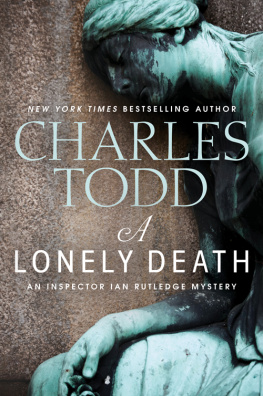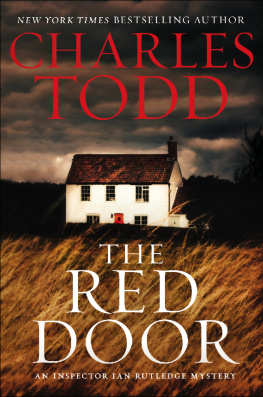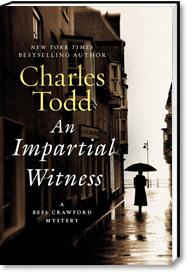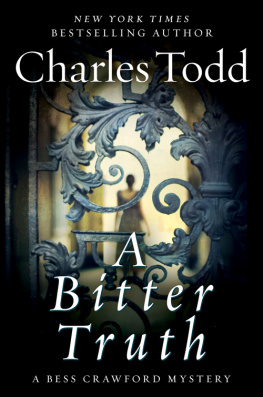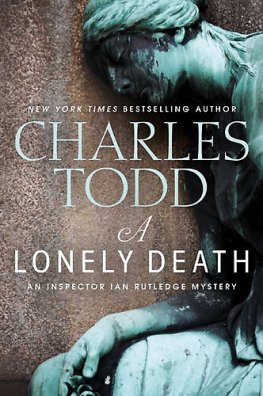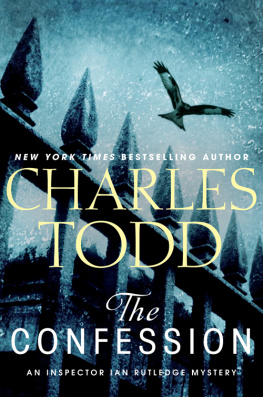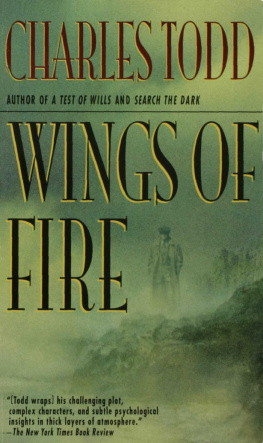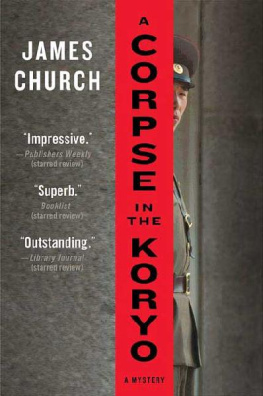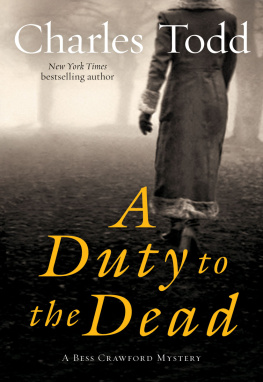
Charles Todd
A Bitter Truth
The third book in the Bess Crawford Mystery series, 2011
For Monty,
who wont be there this time.
And for Moses,
who will.
With hugs and much love, as always.
And for Jean, reader, cook, proofreader, friend,
who always does things differently.
With gratitude.
London, December 1917
Acold rain had followed me from France to England, and an even colder wind greeted me as we pulled into the railway station in London. As I handed in my ticket, I looked for my father, who was usually here to meet me. Or if he couldnt come, he generally sent Simon Brandon in his place.
But there were no familiar faces among the crowd, and after waiting nearly fifteen minutes, I decided that my telegram from Dover must have been delayed. Of course military traffic was always given priority, but the telegraph office had assured me that they would do their best. There was nothing for it but to find a cab for myself.
Outside Victoria Station, a family with small children was just bespeaking the last one. Well, then, it would have to be an omnibus. As I walked on to the nearest stop, the wind whipped along the street after me, plucking at my skirts, prodding my back. One going in my direction was already approaching, for which I was grateful, and as we rumbled through the darkness toward my destination, I took stock of the city I hadnt seen for several months.
Even at this hour it was quiet, the streets empty except for a few brave souls going about their business with heads down and coats wrapped tightly against the probing fingers of the wind. Shops were already closing, and everywhere curtains were drawn to keep out the night. In front of a pub we were passing, a few men stood talking for a moment, hands deep in pockets, and even as I watched, they said their farewells and hurried their separate ways toward home. A boy raced up the steps of a church and disappeared through the heavy door, a shaft of light briefly illuminating his worried face. The sound of voices just reached me, a boys choir, and at a guess, he had nearly missed rehearsal.
We were only three stops from where I usually got down when the omnibus came to a lurching halt.
Just ahead of us, I could see torches flashing this way and that in the street, and someone was shouting at us.
My first thought was that we had struck someone.
I got to my feet, ready to offer whatever aid was needed, just as a middle-aged constable hurried up to the omnibus and spoke to the driver. We couldnt hear what was said, but soon enough the constable had opened the omnibus door and stepped inside. He frowned when he saw me standing there.
Is anyone hurt? I asked quickly.
No, Sister, he said harshly. Resume your seat.
I did as I was told, and he scanned each of us with a thoroughness that indicated he was intent on finding someone. Finally, apparently satisfied, he was gone, mercifully closing the door behind him and shutting out the wind. But I heard his boots climbing the rear stairs to the upper deck, where no one had had the courage to sit, then pelt down again after several seconds. He and the driver exchanged a few more words, and I saw the driver reluctantly nod. And then the constable was hurrying away, caught for a brief moment in the glare of our headlamps.
A man just behind where I was sitting demanded fretfully, Whats happened? Why did we stop?
Outside, the driver got down from behind the wheel and opened the door once more, poking his head inside, his face barely visible above a thick blue muffler. Deserter, he informed us. We wont be allowed to move on until this street has been cleared. The police have reason to believe hes hiding hereabouts. Or being hidden.
Everyone began asking questions at the same time, but the driver simply shook his head and closed the door. I was looking out the window, clearing the glass with one gloved hand, watching the play of torches against the windows and doors of the houses on my side as the police went on with their search. And then out of the corner of my eye, I saw a figure in black slip down a service passage, disappearing into the deeper shadows cast by the houses on either side. There would be a stout wooden gate at the end leading into a back garden, and with luck, another at the bottom of that, giving onto another garden and another passage to the street beyond. Either a trap-or an escape.
It had happened so fast, I couldnt judge whether it was a man or a woman. Or if I had imagined it altogether. The deserter? Or someone else nearly caught up in the tightening net?
A constable must have seen the figure as well, because he blew his whistle and ran forward. But when he turned his torch into the blackness, it showed only the closed gate. After a moment, he walked halfway to the end of the passage before coming back.
I sat there, trying to come to terms with my duty. As an officers daughter I understood the need for discipline and order in the Army. To walk away and leave ones fellow soldiers to their fate was, in my view, dishonorable. And yet Id seen the horror of war, the suffering and the awful cost of doing ones duty. For some men that was insupportable.
There were other reasons too. For all I knew, the hunted man had risked everything to come home to a wife who was desperately ill or to see a newborn child. Even to sit by his mothers deathbed. The Army was not always generous with compassionate leaves, refusing to allow a man torn between love and duty the few days he so badly wanted to comfort those who needed him at home. Id seen men in despair driven to shooting themselves in the hand or foot in a bid for leave.
Who was I to decide the fate of this man? The constable had already looked closely at the passage, hadnt he? And decided that it was empty?
But this deserter would eventually be found. And shot. The Army was relentless in its determination. It was just a matter of time.
And so I sat there, unable to bring myself to step off the omnibus and speak up. Instead I listened as the hue and cry swirled up one side of the street and then down the other. The shouts of constables, their whistles shrill in the night, were loud at first, then fading as the hunt turned back the way wed just come.
It was late when the same constable, out of breath now, came to inform the driver that we could go on our way. The driver must have asked the question on all our minds, for I saw the policeman shake his head. And then we were moving, lumbering through the darkness as we continued on our route.
The man behind me said, I dont envy those constables. Its not a fit night for man nor beast to be out there.
And a woman behind him asked anxiously, Will he be given a fair trial, when hes caught? The deserter?
Hell be found guilty, right enough, an elderly laborer answered her. Its not the Armys way to be lenient. Mark my words.
And from the last seat, a soldier in the uniform of the discharged wounded said quietly, God help him.
I could see my corner coming up now, and I dreaded getting down. Even in my boots, my feet were icy cold from the long wait, and my gloved fingers as well, although Id tried to keep them tucked under my arms.
Stepping down in the lee of the omnibus, I had a moment to catch my breath before it moved on and the full brunt of the wind struck me with such force that I nearly stumbled.
Narrowing my eyes against the bite of it, I walked on briskly, listening to the far-off sounds of police whistles. Ahead was Mrs. Hennesseys house, where friends-also nursing sisters-and I had taken a flat. As I drew nearer, I saw that there were no lights shining from the windows of the ground floor, and I remembered that this must be Mrs. Hennesseys night for dinner and a cozy gossip with an old friend. Above, on the second storey, the windows of our sitting room were also dark. Tired as I was from two days of traveling, I was just as glad that no one else was in London. I could leave the gifts Id found for each flatmate with Mrs. Hennessey. She would enjoy playing Father Christmas when next she saw them.
Next page

